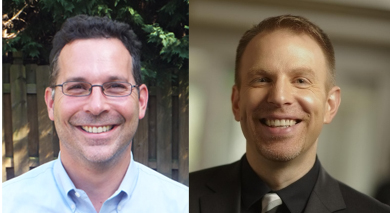This story was adapted from a piece authored by Chelsea Stein of MSU’s Broad College of Business.
When the coronavirus pandemic hit the United States in March, business leaders didn’t have much time to respond. They were immediately tasked with pivoting operations and reinventing processes to stay afloat or provide support for others. Some could step up to the challenge, like General Motors shifting production to deliver 30,000 ventilators in a matter of four months, whereas others struggled for their very existence.
In most cases, leadership — and the decisions that leaders make in the face of an event like this pandemic — can be the determining factor between business success or failure.
Critical events don’t necessarily have to be large-scale crises. They could be adjusting to the loss of a core team member, strategizing about how to respond to a competitor’s new product or dealing with the loss of a client.

A collaboration between Frederick Morgeson, Eli Broad Professor of Management at the Broad College of Business at Michigan State University and Daniel Bachrach, Professor of Management and Morrow Fellow at The University of Alabama’s Culverhouse College of Business, is a groundbreaking first foray to delve into the implications of the fragmented, event-heavy reality of leaders.
This new research, funded by the U.S. Army Research Institute, will be the first to explore the implications of this “leadership as event management” concept. The two-person team was awarded a three-year, $885,000 grant from the institute, with two options periods that could extend the grant to seven years and $2.4 million in funding.
“A considerable body of past research, including some that I have conducted, has shown that leaders structure their working lives around events, whether those are major crises, periodic ‘fires,’ significant problems or routine changes,” said Morgeson, a prominent scholar in the leadership domain.
“In short, leaders commonly find themselves in ‘event-dense’ environments, where success or failure depends on their ability to anticipate, respond to or create new events,” he said. “The global pandemic has really highlighted this reality, with leadership playing a key role in the effectiveness (or ineffectiveness) of different organizational responses.”
“Inspired by past research, we built out the ideas of event-oriented leadership as a continuation of the research I’ve been engaged in for the past 25 years,” Morgeson said.
“It’s a fundamentally different way of looking at organizations and how leadership becomes organized and implemented around events.
Both Morgeson and Bachrach agreed that the body of literature on leadership theory hasn’t truly looked into how critical events can impact leadership –– and that it is rooted in assumptions.
“However, in the real world, working conditions are dynamic and unpredictable,” Bachrach said.
“Just because a leader happens to be good at helping employees navigate routine task demands doesn’t also mean that that same leader is also good at, for example, helping his/her employees through a crisis situation or a system failure.”
Under the grant, the researchers will develop and test the leadership theory with experienced, practicing managers and leaders across a wide range of industries, settings and levels, which Morgeson believes could fundamentally change the way we understand leadership.
“From a leadership point of view, our research will tell leaders what to pay attention to and the possible strategies to employ when an event occurs. From an organizational standpoint, our work will help prepare leaders and identify the types of leaders that are capable of dealing with critical events.”
Morgeson said the intent is to produce a comprehensive statement on the nature of leadership, showcasing how leaders can implement event-based management in proactive ways and become strategic creators of events — in addition to being more effective anticipators and reactors to events — which could redefine the future of business leadership.
“Our work is a reconceptualization of leaders as active event managers that not only anticipate and react to events but also strategically manage events,” Morgeson said. “Whether you’re a leader or a member of a team without formal leadership responsibilities, our research will shed light onto day-to-day leadership dynamics and the different ways in which leadership arises as events come and go.”
Bachrach concluded, “This grant represents a continuous evolution of my leadership research, integrating themes relating to different types of leadership and the different kinds of skills and abilities needed to lead in response to a range of different kinds of events.”
More Information
For commentary from Dr. Frederick Morgeson, contact Chelsea Stein of MSU’s Broad College of Business here.

